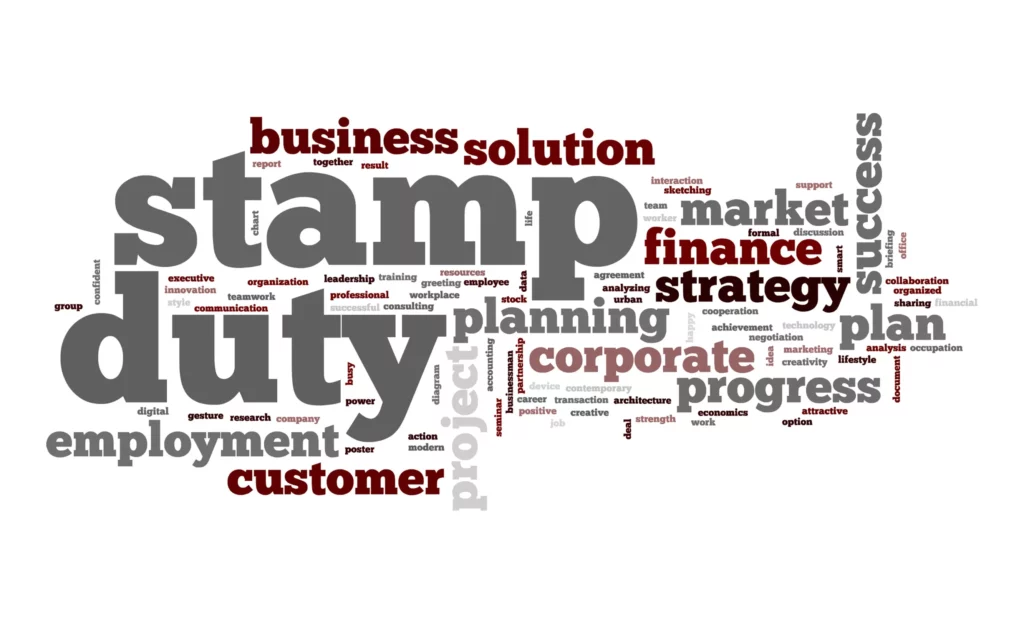“The financial services and property industries are seeing a wind of change as consumer duty finds its place. Embracing technology has a key role to play in underpinning its success and equipping institutions to deliver better outcomes for consumers.” – Roland Whyte, Nokkel CEO
Stepping into the property market – whether you’re a buyer, seller, or investor – presents unique challenges and choices at every turn. Making these decisions, often intricate, can feel overwhelming for many. But here’s a silver lining: The Financial Conduct Authority (FCA) has introduced regulations under the Consumer Duty to provide a solid framework to champion your rights. This isn’t just about companies adhering to a set of rules; it’s about ensuring that every customer is confidentiality and strategically positioned within an ever-evolving property landscape.
As technology continues to revolutionise the property sector, forward-thinking companies, like Nokkel, are tapping into the power of expansive data pools, delivering not just deeper insights, but also empowering people with the confidence to make the most informed decisions possible. The FCA, keeping pace with this tech-driven shift, maintains a clear objective: safeguard customers and guarantee positive outcomes. In this blog, we’ll explore how these regulations, combined with tech advancements in the sector, are moulding the future of the UK property market, equipping you with the tools to navigate with assurance and clarity.

What is the Consumer Duty?
The Financial Conduct Authority (FCA) introduced the Consumer Duty in response to growing concerns about businesses exploiting consumers and not providing fair value or adequate service.
The Consumer Duty is a robust initiative designed to counteract misguidance, mistreatment and misinformation from businesses to their customers. The duty aims to put customers’ needs at the forefront of business decisions, to safeguard their interests for a high standard of service, and assure that businesses provide clear and relevant information to all consumers.
These regulations will mean a significant shift in what is expected from businesses. It involves making lasting changes to culture and behaviour to always deliver good outcomes. Additionally, the consumer duty will help build on a growth in trust amongst businesses and between the business and customer relationships.
When will this come into effect?
Here are the key dates to remember:
- July 27, 2022: Final rules and guidance were published.
- July 31, 2023: The duty takes effect for new products/services and those open for sale or renewal.
- July 31, 2024: The duty extends to closed products/services.

What is the impact on property?
Outlined by the FCA, the financial products that will be covered by the consumer duty are retail mortgages and insurance policies. But keep in mind, it’s only applied for officially regulated businesses.
The consumer duty shines a light on a pressing issue: climate change brings risks to properties. Surprisingly, many advisors might overlook how climate considerations could lead to less-than-ideal decisions for long-term property investments. This is exactly why the FCA stepped up – to make sure property advice prioritises the homeowner’s best interests, especially in these changing times.
The Law Society has recognised this and confirmed that conveyancers have a duty of care and on April 19, 2023, published Guidance on the Impact of Climate Change on Solicitors. Solicitors and conveyancers therefore “need to ensure that home buyers are made aware of the types of climate risks that will likely affect both the ‘quiet enjoyment’ and the future value of their house.
Even more so now mortgage advisers must have clear objectives and priorities for customers, ensuring that the customer has a very clear understanding of their obligations when choosing a green or standard mortgage. The new Consumer Duty establishes three cross-cutting rules which require firms to: (i) act in good faith towards retail customers; (ii) take reasonable steps to avoid causing foreseeable harm to retail customers; and (iii) enable and support retail customers to pursue their financial objectives.
We have outlined some key specifics that must be kept in mind for businesses:
- If there are certain things that must be done to the property, within set timescales, does the customer fully understand these?
- What are the implications, or penalties, if these conditions are not met?
- What if the required changes to the property are not cost-effective?
- Is the customer looking to minimise their ongoing energy costs or is it a priority to gain maximum value for money from any improvements they make?
For businesses giving out property advice, it is important to remember that the role is not to identify how long it takes to recover initial costs, but it is your role to make sure that you are recommending the right product, based on the research your customer has already done, in line with their financial objectives. Where their financial objectives appear to clash, it is your duty to identify their priorities before making a recommendation.

What should businesses expect?
Delving deeper into the concept of consumer duty and what this means for businesses, we observe how consumer duty is ensuring that firms act in the best interests of customers and delivering a higher standard of customer care and protection, this new regulatory regime will require businesses dealing with ‘retail customers’ to act to deliver good outcomes for these customers. The regulations of the Consumer Duty imply that helpful and accessible customer support from firms with a focus on not making customers wait a lengthy period of time before communicating is key, and a focus on the real and diverse needs of customers.
Businesses should provide clear expectations of products and services and continued improvement in customer support alongside requiring firms to analyse their products and services to ensure they provide fair value with a reasonable relationship between the price consumers pay and the benefit they receive, highlighting that firms need to justify the price they charge to themselves and their board. The Financial Advice Business Benchmarks Report 2023 highlighted that 38% of businesses think that the Consumer Duty will have no impact on their business and 13% are concerned the rules will have a negative impact.
A focal point being on the data that is collected will have customers at the forefront and an analysis of the whole product life cycle. There will be a hands-on approach from the Financial Conduct Authority seeking evidence from firms regarding what consumer outcomes are being achieved, how firms are achieving these and what plans they are putting in place to make sure these outcomes are fulfilled.
Additionally, boards are expected to have an ongoing role overseeing such plans and to ensure that they remain on track. The FCA has said that “The Duty moves towards a flexible regulatory framework… We envisage fewer rule changes, which should lower compliance costs to firms and provide a boost to growth and innovation.”
The role of the Consumer Duty in mortgage planning
Mortgage planning is intricate and ever-changing. With homeownership rates dropping over the last two decades (68% of those aged 35-44 had a mortgage in 1997; by 2017, this fell to 50%), the need for consumer protection and transparency has intensified.
The Consumer Duty rules aim to transform how mortgage intermediaries work, putting clients at the heart of everything. This shift advocates an outcomes-driven approach, ensuring all financial products meet higher standards, and advisers deliver clear, tailored advice to keep clients informed long-term. Mortgages that are under increased scrutiny, (i.e. green mortgages), will demand that advisers factor in various conditions and obligations, ensuring customers are consistently in the loop about their choices.
There’s a fresh focus on improving clarity and providing personalised advice for those looking to own homes. This means mortgage experts now have more responsibilities, including following FCA’s rules and giving extra support to vulnerable customers. The goal is to make sure every mortgage choice is thoughtfully made, matching each person’s financial situation and long-term goals. As the mortgage world changes, it’s even more important for advisors to communicate clearly, helping customers make the most informed decisions possible about property.
Enhancing financial planning
The Consumer Duty signals a shift towards a more polished approach to financial planning, emphasising transparency and elevating client interests. Consider Equity Release, a service once clouded by scepticism, is poised for transformation. With Consumer Duty’s strong focus on client welfare, we anticipate the potential for renewed trust in these services, reflecting a broader industry shift to more flexible and data-informed strategies.
Accurate Property data is fast becoming a vital tool for savvy investors. Coupled with the rules of the Consumer Duty, we’re looking at a financial realm that’s more well-informed, agile, and pivoted around a customer’s long-term objectives. For those with significant investments in the property market, this synergy promises a future of clarity and confidence in financial decision-making.

Enhancing retirement planning
Thinking about your golden years? The Consumer Duty ensures they’ll be even brighter by advocating for a retirement planning approach that’s both informed and tailored just for you.
This shift brings with it a profound transformation in retirement strategies, centred on clarity and the individual. It’s about ensuring your twilight years resonate with your dreams. By using property data, businesses can tweak retirement strategies to keep up with market trends. Addressing this will be pivotal for advisers to effectively align with the Consumer Duty requirements and provide clients with well-rounded advice. So, with this data-driven approach and some handy tech insights, you can expect a clearer, more personalised path for your retirement.

Leveraging Proptech
In the dynamic realm of today’s housing market, there’s a term we can’t overlook: Proptech (aka, property technology). Think of Proptech as the nifty tech tools that are making buying and selling homes easier and smarter. Just like the behind-the-scenes magic we talked about in our blog on https://www.nextwealth.co.uk/research/financial-advice-business-benchmarks-report-2023/, these tools, such as APIs, help different systems talk to each other, making things more open and efficient. This ensures that people get a comprehensive view of a property. Roland Whyte, CEO and founder of Nokkel states that, “The financial services and property industries are seeing a wind of change as consumer duty finds its place. Embracing technology has a key role to play in underpinning its success and equipping institutions to deliver better outcomes for consumers.”
As homes and technology become more intertwined, Proptech is introducing innovative methods to experience property, like virtual tours, and data-driven valuations. Players in the property market, from local councils to HM Land Registry, are leveraging proptech to help make a clearer, and more transparent portrait of property. The main objective is to put the needs of consumers first. This aligns perfectly with Consumer Duty, which is all about making sure clients are treated fairly. There’s a great potential for proptech tools to provide an increased focus on what people really want from their experience in property. With the right blend of technology, industry standards, and customer-centricity, we foresee a data-driven revolution in the property world for the better.
All, in all…
The introduction of the FCA’s Consumer Duty marks an essential shift towards ensuring customer interests and bolstering transparency in the property world. For those navigating the property market, the merging of the new Consumer Duty regulations and innovative tech solutions promises a future of informed decisions, heightened trust, and an enhanced property experience.
As companies, like Nokkel, harness vast data reservoirs for deeper insights, the property market is poised to be more customer-centric than ever. With an emphasis on clarity, fairness, and tailored solutions, both customers and firms can anticipate a future of the property market where integrity, data-driven insights, and customer welfare reign supreme.



